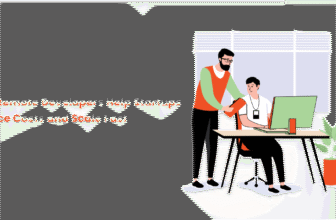
We’re faced with countless decisions every day, many of which are minor and insignificant. These small, unimportant decisions can seem harmless, but they add up and take a toll on our mental energy. The more choices we make, the more fatigued our brains become, leading to decreased focus and productivity. This phenomenon is known as decision fatigue.
By eliminating or minimizing unimportant decisions, you can conserve mental energy, allowing you to focus on the tasks and decisions that truly matter. In this blog, we’ll explore how cutting down on trivial choices can help you regain control of your time, sharpen your focus, and ultimately boost productivity.
What is Decision Fatigue?
Decision fatigue is the gradual deterioration of decision-making quality as a result of making too many choices throughout the day. As humans, our brains can only handle a limited number of decisions before becoming exhausted, which can lead to impulsive choices, procrastination, or a tendency to avoid decisions altogether.
When you use up mental energy on trivial decisions—like deciding what to wear, what to eat, or which emails to respond to first—you’re left with less cognitive power for more significant decisions. The result? A reduction in productivity and overall performance.
Why Eliminating Unimportant Decisions Matters
By simplifying and streamlining your decision-making process, you can avoid wasting mental energy on inconsequential choices. This creates more space for high-impact tasks that move the needle on your goals and responsibilities. When we eliminate unimportant decisions, we reduce distractions, increase focus, and become more productive in our personal and professional lives.
Strategies to Eliminate Unimportant Decisions
Here are several proven methods to help you minimize decision fatigue and focus on what truly matters:
1. Create Routines for Daily Tasks
Routines help eliminate the need to make decisions about everyday activities. If you have a morning routine that includes waking up, exercising, and eating the same breakfast, you save yourself from having to decide these things every day. This strategy allows you to start your day with more energy and focus on important work.
A consistent routine provides structure to your day, allowing you to move smoothly through tasks without the constant need to make choices.
2. Automate Repetitive Decisions
Automation is a powerful way to eliminate unnecessary decisions. You can automate low-level tasks such as bill payments, calendar scheduling, or email filtering. By using technology to handle repetitive decisions, you reduce mental load and free up time for more significant decisions.
For example, automating your work schedule through productivity monitoring tools can help you focus on your most important tasks without worrying about minor scheduling details.
3. Limit Choices in Certain Areas
Reducing the number of options you consider in various aspects of life can dramatically improve productivity. If you limit your wardrobe to a few favorite outfits or simplify your lunch options, you remove the need to make decisions about those things.
This strategy has been used by many successful leaders, like Steve Jobs and Mark Zuckerberg, who famously adopted simple wardrobes to reduce the number of daily decisions they had to make.
4. Batch Similar Tasks Together
Task batching involves grouping similar tasks and completing them during a dedicated time slot. By doing this, you eliminate the need to decide when or how to tackle individual tasks throughout the day. For example, instead of answering emails sporadically, set aside a specific time to go through your inbox all at once.
Task batching helps you maintain focus and reduces the cognitive burden of switching between tasks frequently.
5. Delegate or Outsource Low-Value Tasks
Not all decisions need to be made by you. If a task doesn’t require your unique expertise, delegate it to someone else. By trusting others with low-priority tasks, you eliminate decision-making around those responsibilities and free up your time to focus on high-impact work.
Delegating tasks effectively can reduce decision fatigue and allow you to concentrate on core activities that contribute to your productivity and success.
How Eliminating Unimportant Decisions Boosts Productivity
Now that we’ve covered strategies to eliminate unimportant decisions, let’s look at the direct impact this has on productivity:
1. Preserving Mental Energy
When you eliminate trivial decisions, you preserve your brainpower for tasks that truly matter. By the time you sit down to work, your mind is clear, focused, and ready to tackle important projects without being weighed down by small decisions that have eaten away at your mental energy.
2. Better Decision-Making on Important Matters
By reducing decision fatigue, you’ll be in a better mental state to make thoughtful and well-informed decisions when they count. Rather than feeling overwhelmed by the sheer number of choices in front of you, you’ll be able to approach important decisions with clarity and precision.
3. Increased Focus on High-Impact Tasks
Fewer unimportant decisions mean more time and energy to focus on truly valuable tasks. Without distractions, you can direct your full attention to the work that has the greatest impact on your personal or professional goals.
4. More Time for Creativity and Innovation
By cutting down on mental clutter, you free up brainpower for creative thinking and problem-solving. When your mind isn’t bogged down by small decisions, you have more room for innovation and new ideas. This can be particularly valuable in roles that require creative or strategic thinking.
How to Apply This in the Workplace
In a professional setting, eliminating unimportant decisions can streamline workflows, enhance collaboration, and lead to better overall team performance. For example, managers can reduce the number of meetings or automate approval processes to cut down on unnecessary decision-making for their team members. When employees are focused on high-value tasks rather than low-priority decisions, productivity naturally improves.
Conclusion: Simplify to Amplify
Eliminating unimportant decisions is more than just a productivity hack—it’s a way to clear mental clutter and create space for what matters most. By streamlining your routine, limiting choices, automating repetitive tasks, and delegating effectively, you can sharpen your focus, preserve mental energy, and boost your productivity.
The key is to remember that not all decisions are equally important. By reducing or removing the need to make small decisions, you free up your cognitive resources to handle the big ones, leading to better performance and a more productive, fulfilling life.







